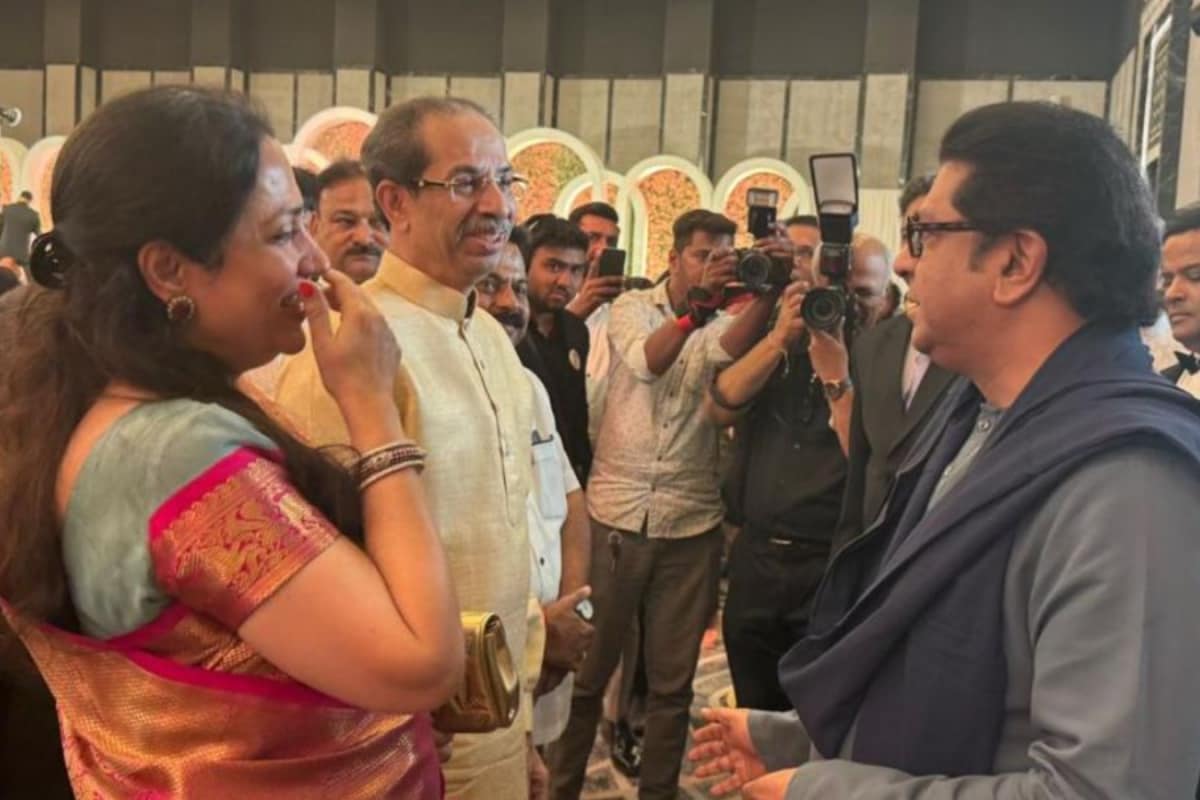

The possibility of a reunion between the Thackeray cousins, Uddhav Thackeray of Shiv Sena (UBT) and Raj Thackeray of Maharashtra Navnirman Sena (MNS), has been a recurring topic in Maharashtra politics. As the state gears up for upcoming elections, including crucial Mumbai civic body polls, the potential impact of such an alliance on the Bharatiya Janata Party's (BJP) prospects is being widely discussed. While the coming together of the Thackeray cousins has sparked considerable buzz, a recent internal survey conducted by the BJP suggests that the party remains unfazed, confident in its existing voter base and strong leadership.
Several factors contribute to the BJP's apparent confidence. Firstly, the survey highlights the perceived reduction in influence of Uddhav Thackeray's Shiv Sena (UBT) following a significant split within the party, leading to Eknath Shinde faction claiming the original Shiv Sena name and symbol. This division is believed to have weakened the party's overall strength, potentially diminishing the impact of any alliance with the MNS.
Secondly, the BJP seems secure in its established voter base across key regions. Opinion polls from late 2024 indicated a favorable edge for the BJP-led Mahayuti alliance, projecting a significant vote share in regions like Western Maharashtra, Vidarbha, and Thane-Konkan. This existing support, coupled with the party's organizational strength, is seen as a buffer against any potential challenge posed by a united Thackeray front.
However, the potential alliance cannot be completely dismissed. Historically, the Thackerays have held significant sway over the Marathi vote, particularly in Mumbai and surrounding metropolitan areas. The emotional appeal of the two cousins campaigning together could resonate with this demographic, potentially altering the electoral landscape. Both Shiv Sena (UBT) and MNS have a strong foundation in Mumbai, and a united front could pose a formidable challenge to the BJP's ambition to dominate the Mumbai civic body, which has been a stronghold of the Shiv Sena for decades.
The success of any Thackeray alliance hinges on several factors. A key consideration is whether Uddhav Thackeray would be willing to exit the Maharashtra Vikas Aghadi (MVA) alliance, which includes the Indian National Congress and the Nationalist Congress Party (NCP). Similarly, Raj Thackeray would need to sever ties with the BJP and the Eknath Shinde-led Shiv Sena. The question of leadership within the alliance also remains a critical point, along with seat sharing.
Furthermore, both parties need to reconcile their ideological positions and present a united front on key issues. Despite these challenges, some political analysts believe that an alliance could be mutually beneficial, offering both parties a chance to regain lost ground and emerge stronger. The MNS, in particular, has struggled in recent elections, while the Shiv Sena (UBT) has been weakened by the split within its ranks.
Ultimately, whether the Thackeray cousins' possible tie-up will significantly impact the BJP's poll prospects remains to be seen. While the BJP's internal survey suggests confidence in its existing support base, the potential for a consolidated Marathi vote under a united Thackeray banner cannot be ignored. The upcoming elections will serve as a crucial test of strength for all parties involved, and the dynamics of this potential alliance will undoubtedly play a significant role in shaping the outcome.